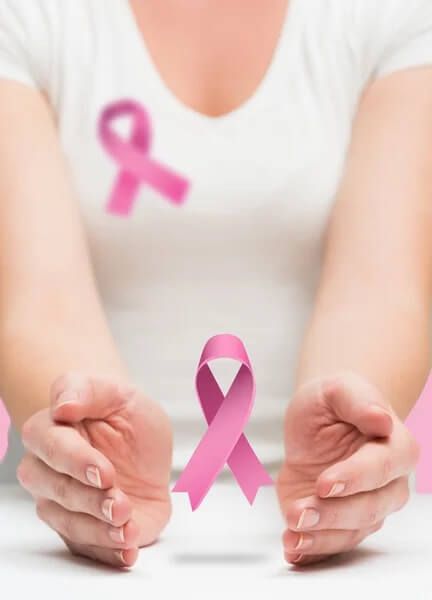
Breast cancer is the most commonly diagnosed cancer among women globally, and in the United Arab Emirates and Gulf region it also ranks as the leading cancer in women. Early detection through screening, awareness of risk factors, and culturally sensitive education are essential to reduce morbidity and mortality.
Epidemiology & Regional Considerations
- In the UAE, breast cancer accounts for over one-third of female cancer diagnoses [1].
- Women in the UAE are often diagnosed at a younger age and at later stages compared to Western populations [1].
- In the Gulf Cooperation Council (GCC), breast cancers tend to show more aggressive biological subtypes, with higher HER2 expression and lower luminal A subtypes [2].
- A UAE-based cross-sectional study found that uptake of preventive screening and breast self-examination remains low. Many women reported limited interaction with healthcare providers on the topic [1].
- Key barriers include low awareness, cultural sensitivities, limited encouragement from providers, and heavy reliance on social media over medical sources [3].
Risk Factors & Prevention
Non-modifiable risk factors:
Modifiable risk factors:
- Obesity, especially post-menopause
- Physical inactivity
- Alcohol consumption
- Hormone replacement therapy (HRT)
- Dense breast tissue
Protective factors:
- Breastfeeding
- Healthy weight and active lifestyle
Studies estimate that 25% or more of breast cancer cases are preventable through lifestyle changes [4].
Screening, Self-Exam, Clinical Exam, & Early Detection
Breast Self-Examination (BSE):
- A personal technique to detect early changes in breast shape, size, or feel.
- Best done monthly, 6–10 days after menstruation begins.
- Though not a substitute for mammograms, BSE promotes breast awareness
- Look for: new lumps, skin dimpling, nipple inversion/discharge.
Clinical Breast Examination (CBE):
- Performed by trained healthcare professionals, typically during routine check-ups.
- Recommended every 1–3 years for women aged 20–39, and annually for those 40+.
Imaging (Mammography & Ultrasound):
- In the UAE, women aged 40–69 are encouraged to undergo mammograms every 1–2 years [1].
- Women with higher risk (family history or BRCA mutations) may begin screening earlier.
- Ultrasound is used especially in younger women or those with dense breast tissue.
Challenges in the UAE context:
- Low uptake of screening despite high-risk awareness [1].
- Many women rely on non-medical sources like social media [1].
- Providers often do not proactively assess risk or discuss screening with patients [1].
Awareness, Communication & Cultural Considerations
- A study in Ras Al Khaimah showed that many women had limited understanding of breast cancer and were unaware of free screening services [3].
- Cultural sensitivity is key— women prefer discreet, private information and modest visuals.
- Campaigns like the Pink Caravan by FOCP help reach diverse communities through mobile screening units [5].
- Trusted female healthcare providers, Arabic-language material, and modest education tools (e.g. silhouettes) are essential for acceptance.
References
- BMC Public Health (2025) – “Breast Cancer Preventive Behaviour and Screening Uptake Among Women in the UAE” 🔗 https://bmcpublichealth.biomedcentral.com/articles/10.1186/s12889-025-23807-9
- Nadja Health – “Breast Cancer Cases Rise Among Gulf Women with Unique Regional Features”🔗 https://www.nadja.co/2024/07/04/breast-cancer-cases-rise-among-gulf-women
- MDPI Healthcare Journal (2020) – “Breast Cancer Screening in Ras Al Khaimah: A Qualitative Study on Barriers and Awareness” 🔗 https://www.mdpi.com/2227-9032/8/4/495
- Howden Group UAE (2024) – “Breast Cancer Awareness October Report” 🔗 https://www.howdengroup.com/ae-en/news-insights/breast-cancer-awareness-october-2024-howden-uae
- Wikipedia – Pink Caravan (FOCP UAE) 🔗 https://en.wikipedia.org/wiki/Pink_Caravan
